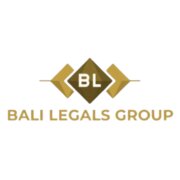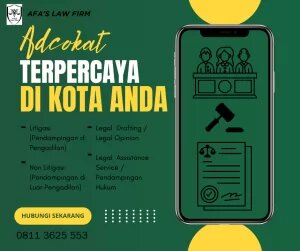Best Project Finance Lawyers in Indonesia
Share your needs with us, get contacted by law firms.
Free. Takes 2 min.
Or refine your search by selecting a city:
List of the best lawyers in Indonesia
About Project Finance Law in Indonesia
Project finance in Indonesia is a structured financing method commonly used for large-scale, capital-intensive projects such as infrastructure, energy, mining, and public-private partnerships (PPPs). Unlike traditional lending, project finance structures typically rely on the future cash flow of the project for loan repayment, instead of the balance sheet of project sponsors. The legal and regulatory landscape in Indonesia is shaped by a combination of civil law, specific sectoral regulations, and international best practices, with a particular emphasis on security interests, government guarantees, and risk allocation.
The Indonesian government has prioritized infrastructure development, creating supportive frameworks and incentives for both domestic and foreign investors through updates to laws and regulations. Understanding the legal intricacies involved, including licensing, security, government approval, and dispute resolution mechanisms, is crucial for successful project finance transactions.
Why You May Need a Lawyer
Engaging a lawyer in project finance transactions in Indonesia is essential for several reasons. The complexity and multi-party nature of such projects demand careful legal structuring to manage risks and ensure compliance. Common situations requiring legal assistance include:
- Drafting and negotiating project agreements, financing documents, and security arrangements
- Securing required licenses and government approvals
- Managing foreign investment and capital structuring issues
- Advising on public-private partnership (PPP) arrangements
- Conducting legal due diligence to identify and mitigate risks
- Ensuring compliance with environmental and land use regulations
- Resolving disputes through negotiation, arbitration, or litigation
- Dealing with cross-border financing and foreign exchange matters
Given that stakeholders often include governmental bodies, financial institutions, contractors, and financiers, having experienced legal counsel can help navigate regulations, protect investments, and support successful project completion.
Local Laws Overview
Indonesian project finance is influenced by a mix of national legislation and sectoral regulations. Some key aspects include:
- Foreign Investment Restrictions: Foreign ownership in certain sectors may be limited by the Negative Investment List (Daftar Negatif Investasi)
- Licensing and Permits: Major projects often require numerous permits from central and regional governments, depending on the project type and location
- Public-Private Partnerships (PPPs): Regulated by Presidential Regulation No. 38 of 2015, PPPs allow for cooperation between government and private entities in infrastructure projects
- Security Interests: For project finance, security over assets, receivables, land, and shares is commonly used. These are regulated mainly by the Fiducia Law, Mortgage Law, and Capital Market Law
- Government Guarantees: In certain cases, government guarantees and viability gap funding may be available, particularly for strategic infrastructure projects
- Tax and Fiscal Incentives: Special incentives may be provided based on project classification and investment value
- Environmental and Social Compliance: Environmental Impact Assessment (AMDAL) and land acquisition rules must be strictly adhered to
- Dispute Resolution: Project agreements typically stipulate arbitration or local court jurisdiction, often with recourse to the Indonesian National Arbitration Board (BANI) or international arbitration bodies
Staying informed of legal updates is crucial, as regulations may change to accommodate evolving economic and political priorities.
Frequently Asked Questions
What is project finance and how does it differ from traditional loans?
Project finance relies on the future cash flow of the project for repayment, rather than the overall financial strength of the sponsors. Lenders have recourse primarily to project assets and revenues.
Are foreign investors allowed to participate in project finance in Indonesia?
Yes, but foreign ownership may be restricted in certain sectors. Investors should check the latest Negative Investment List and obtain necessary approvals from Indonesia's Investment Coordinating Board (BKPM).
What legal structures are common for project finance deals in Indonesia?
Special purpose vehicles (SPVs) are often set up to isolate project risks and assets, usually in the form of limited liability companies (PT).
What are the key risks in Indonesian project finance transactions?
Risks include regulatory changes, foreign exchange controls, land acquisition delays, environmental compliance, and enforceability of security interests.
Which government approvals are typically required for major projects?
Depending on the sector, approvals may be needed from sectoral ministries, local governments, BKPM, and environmental or land authorities.
How are disputes in project finance projects usually resolved?
Most agreements specify arbitration (local or international) or litigation in Indonesian courts. The Indonesian National Arbitration Board (BANI) is commonly used.
Is government support available for private projects?
For key infrastructure projects, the government may provide guarantees, letters of comfort, or viability gap funding, particularly under PPP schemes.
How are assets and receivables secured for lenders in Indonesia?
Security can be taken through mortgages over land, fiduciary assignments over moveable assets and receivables, and pledges over shares. Proper registration is crucial for enforceability.
What environmental requirements must be met for project financing?
Projects must undergo environmental impact assessments (AMDAL) and comply with Indonesian environmental laws. Failure to comply can lead to license revocation.
Can offshore loans be used for project finance in Indonesia?
Yes, but they are subject to Bank Indonesia regulations on foreign currency borrowing and must comply with hedging and reporting requirements.
Additional Resources
If you need more information on project finance in Indonesia, consider reaching out to:
- Indonesia Investment Coordinating Board (BKPM)
- Ministry of Finance, Republic of Indonesia
- Ministry of Public Works and Housing
- Indonesian Financial Services Authority (OJK)
- Indonesian National Arbitration Board (BANI)
- Project Management Offices (PMOs) within relevant government ministries
- Indonesian Chamber of Commerce and Industry (Kadin)
- World Bank and Asian Development Bank regional offices (for guidance and publications)
Next Steps
If you are considering or involved in a project finance venture in Indonesia, it is strongly recommended to consult with a legal expert early in the process. Here are some actions you can take:
- Gather key information about your project, including project scope, sector, and stakeholders involved
- Identify any cross-border elements and potential regulatory challenges
- Reach out to a law firm or legal specialist with experience in Indonesian project finance
- Prepare a list of questions or concerns to ensure a productive consultation
- Review your business plan and financing structure with your legal advisor to identify risks and opportunities for optimization
- Discuss long-term compliance, dispute resolution mechanisms, and investment protection strategies
Selecting the right legal support is a key factor in a successful project finance undertaking. Early legal involvement helps manage risks, improves project bankability, and increases the likelihood of a smooth execution.
Lawzana helps you find the best lawyers and law firms in Indonesia through a curated and pre-screened list of qualified legal professionals. Our platform offers rankings and detailed profiles of attorneys and law firms, allowing you to compare based on practice areas, including Project Finance, experience, and client feedback.
Each profile includes a description of the firm's areas of practice, client reviews, team members and partners, year of establishment, spoken languages, office locations, contact information, social media presence, and any published articles or resources. Most firms on our platform speak English and are experienced in both local and international legal matters.
Get a quote from top-rated law firms in Indonesia — quickly, securely, and without unnecessary hassle.
Disclaimer:
The information provided on this page is for general informational purposes only and does not constitute legal advice. While we strive to ensure the accuracy and relevance of the content, legal information may change over time, and interpretations of the law can vary. You should always consult with a qualified legal professional for advice specific to your situation.
We disclaim all liability for actions taken or not taken based on the content of this page. If you believe any information is incorrect or outdated, please contact us, and we will review and update it where appropriate.
Browse project finance law firms by city in Indonesia
Refine your search by selecting a city.















